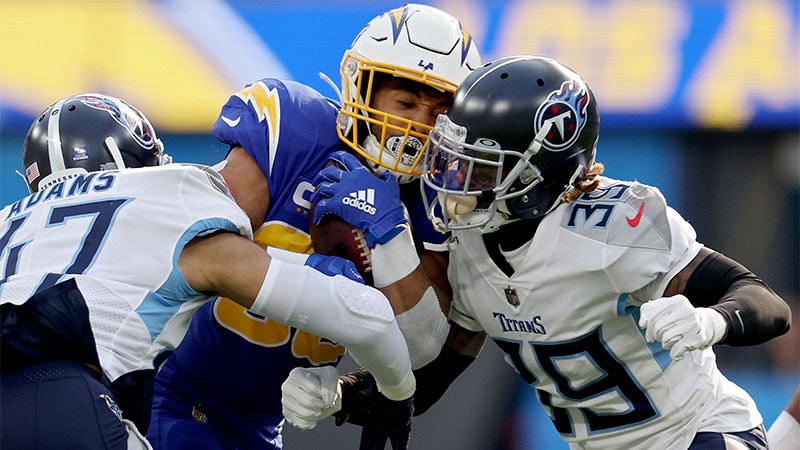Playing Football Linked to Higher Parkinson's Risk
Core Concepts
Playing tackle football is associated with an increased risk of developing parkinsonism or Parkinson's disease.
Abstract
The research suggests a link between playing tackle football and a higher risk of developing parkinsonism or Parkinson's disease. The study focused on older men, with former tackle football players having a 61% higher likelihood of reporting a diagnosis of parkinsonism or PD compared to men who played non-football sports. Longer football participation and higher levels of play were associated with increased risk. The study was published in JAMA Network Open and leveraged data from Fox Insight, sponsored by the Michael J. Fox Foundation for Parkinson's Research. The findings were based on a cohort enriched for PD, cautioning about generalizability due to the sample's demographics and self-reported diagnoses.
Translate Source
To Another Language
Generate MindMap
from source content
Visit Source
www.medscape.com
Playing Football Linked to Higher Parkinson's Risk
Stats
Former tackle football players had a 61% higher likelihood of reporting a diagnosis of parkinsonism or PD.
Football players who competed at the college or professional level had nearly triple the odds of reporting a parkinsonism/PD diagnosis.
Playing one to four seasons yielded an OR 1.39, while playing five or more seasons had an OR of 2.18.
Quotes
"The emerging body of research leaves little doubt that engaging in football raises the risk of developing Parkinson's disease and parkinsonism." - Shaheen Lakhan, MD, PhD
Deeper Inquiries
How can the findings of this study impact the regulations or guidelines around youth tackle football?
The findings of this study can have significant implications for the regulations and guidelines surrounding youth tackle football. With the research suggesting a potential link between playing tackle football and an increased risk of developing parkinsonism or Parkinson's disease, governing bodies and organizations responsible for youth sports may need to reevaluate the safety measures in place for young athletes. This could lead to stricter guidelines regarding the age at which children can start playing tackle football, the duration of play, and the level of contact allowed during games and practices. Additionally, there may be a push for increased education for parents, coaches, and players about the risks associated with tackle football and the importance of proper concussion protocols.
What are the potential implications for the future of football as a sport given these research findings?
The research findings linking tackle football to a higher risk of parkinsonism or Parkinson's disease could have significant implications for the future of football as a sport. If further studies continue to support these findings, there may be a shift in public perception regarding the safety of playing football, especially at the youth and high school levels. This could lead to a decline in participation rates, as parents may be more hesitant to allow their children to play a sport with known long-term health risks. Additionally, there may be increased pressure on football organizations to implement stricter safety measures and regulations to protect the health and well-being of players.
How can the benefits of playing football be balanced against the risks highlighted in this study?
Balancing the benefits of playing football against the risks highlighted in this study is crucial for making informed decisions about participation in the sport. While football offers numerous physical, social, and developmental benefits such as cardiovascular fitness, teamwork, discipline, and physical skills, it is essential to weigh these advantages against the potential long-term health risks associated with repetitive head impacts. To strike a balance, parents, young athletes, and healthcare providers should engage in open and honest discussions about the risks and rewards of playing football. Alternative sports that offer similar benefits but with lower risks, such as track and field, swimming, soccer, baseball, and tennis, can be considered as substitutes for those concerned about the potential health implications of playing football. Ultimately, informed decision-making and comprehensive education about the risks and benefits of football are essential in ensuring the well-being of athletes.

